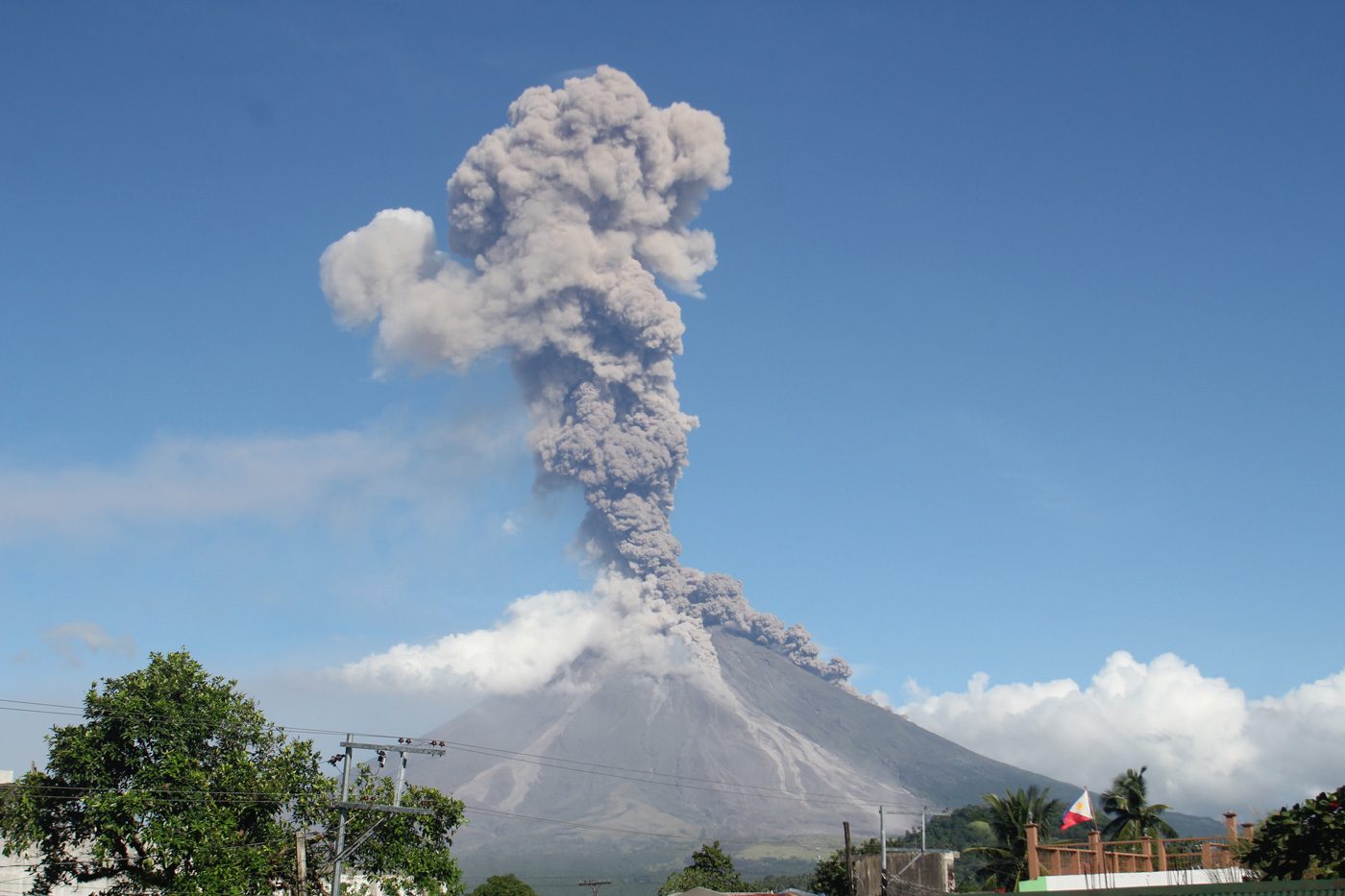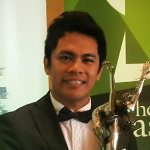SUMMARY
This is AI generated summarization, which may have errors. For context, always refer to the full article.


Whenever I see Mayon volcano in the news these days because of its eruption, I don’t just see ashes and smoke compulsively kissing the sky or lava flowing down its slope. I don’t just sense the fear, pain, or panic of its surrounding residents. It also reminds me of my eldest brother.
In May of last year, the day after one of my sisters got married in Daet, Camarines Norte, I, together with my eldest brother Kuya Oni, his wife and two kids, and my youngest brother Ronnel went on a journey to transform the Google images in our heads into a real one of Mayon, one of the nominees for the 2008 New 7 Wonders of Nature located in Albay in the Bicol region about 500 kilometers south of Manila.
I can still clearly remember how I jumped from one humongous rock to another in my attempt to capture the quintessential shot of its perfect cone as Kazuo Ishiguro’s captivating words in his book, The Remains of the Day, flashed in my memory: “What is pertinent is the calmness of beauty, its sense of restraint. It is as though the land knows of its own beauty, its own greatness, and feels no need to shout it.”
It was not a spur-of-the-moment decision but a planned adventure to witness with our own eyes Mayon’s grandiosity. Spending time with our kuya – an overseas Filipino worker (OFW) in Qatar – is unpredictable. Sometimes, it would take two or 3 years before we see each other again.
“Who would like to join us tomorrow?” Kuya Oni asked the other members of my family. “Let’s finalize it tonight.”
“Where are we going?” I asked him with excitement.
“To Mayon, Ben,” he answered. “Prepare your things, we’ll leave early in the morning.”
“At last, we’ll see the ‘perfect cone’!” I said.
This conversation may just be a mundane for you. But not for us.
When my father died about a couple of decades ago, Kuya had to mature fast and help my mother in taking care of the family. He was still in college then and I was 9. I was oblivious to the encumbrance that had been swiftly heaped on his shoulders. I thought my father would return someday, that he just had to rest for a while. But after months passed by, little by little, the reality of his death dawned on me.
Kuya was a force of nature, a stratovolcano like Mayon if you will, with his periodic eruptions. In his attempt to discipline us, he imposed his own version of martial law at home. Don’t play outside when it’s already dark or when it’s raining. Take a nap in the afternoon after school. Don’t get into a fight with your siblings. No noise or chitchat. Buy me this and that. When I call out your name, run and stand in front of me.
When you’re a child and you’re forced to stay inside the house while your playmates are enjoying basketball or you hear them giggling and shouting at the top of their lungs under the pouring rain, you question everything even though you’re frightened. Why is he doing this to us?
We didn’t talk that much. He was preoccupied with a lot of things: work, relationship, friends. Looking back, I couldn’t recall a time he divulged his true self or his softer side to me. Rather, there was a wall I couldn’t get through. But as I grew older, I understood why he was like that.
He had to project a strong image for us or else we could have broken down. We needed a source of inspiration, courage, and strength and he provided all that. He finished his degree on time and he is continuously developing himself as a professional in a foreign land. In college, he was considered as one of the outstanding students in his electrical engineering class. The back cover of his thesis is scribbled with praises on how well he handled himself with his peers, professors, and yes, even admirers. He achieved a lot despite the financial challenges he had to face.
During our trip to Mayon, while driving, he made jokes about the distinct smell which emanated from the rows of carabao poop at the side of the road. Like a TV announcer, he gave a blow-by-blow update on the remaining time before we reached our destination. We screamed when we had a first look of the cone-shaped land formation at the right side of our car as we cruised the highway. But seconds later, to our dismay, the vision disappeared as clouds devoured the volcano.
As I held a cup of chili-pili ice cream with the Cagsawa Ruins as my backdrop, I glanced at Kuya. The unfamiliarity and awkwardness forged by his long absence vanished instantaneously. I saw him smile while he carried his daughter and I smiled back at them. It was then that it occurred to me how much he has changed in his ways, actions, and temper. I sensed calmness, peace, and serenity in his eyes. Time and distance indubitably help us transform ourselves for the better.
While Mayon continues to spew multi-storey plumes of smoke and ash and hurl pyroclastic material down its slopes, I don’t just see its wrath. What it reminds me more than anything is that one crisp afternoon in May of last year. It was that peculiar, tranquil moment when I, together with my eldest kuya, stared at Mayon with a sense of hope that someday, if given a chance, we’ll go on another adventure together, share stories of triumphs and failures, and invigorate the sleeping strands between us hanging above the vast ocean or the incalculable, free-flowing molten lava. – Rappler.com
Benre J. Zenarosa (zenarosabenre.wordpress.com) is a freelance writer. He’s the recipient of the 2016 Lasallian Scholarum Award for Outstanding Published Column Article on Youth and Education in a Nationally Circulated Publication. He loves writing stories and letters in his head while riding a jam-packed train on his way to work.
Add a comment
How does this make you feel?
There are no comments yet. Add your comment to start the conversation.